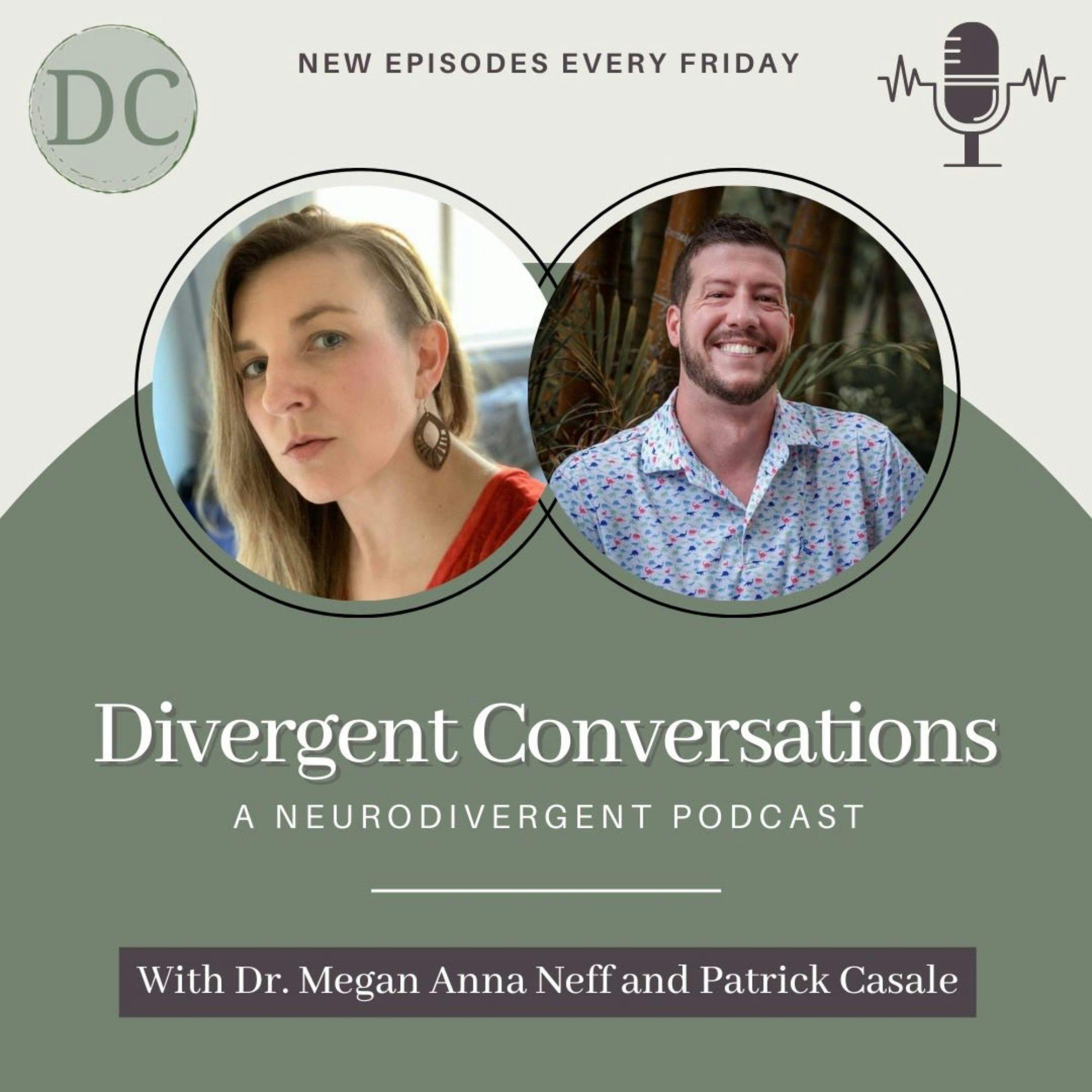Episode 16: Autism and Healthcare: The Impact and Challenges of Self-Disclosure
Description
Self-disclosure of an autistic diagnosis in medical situations or even everyday life is a very vulnerable thing to do, and there are so many results that can come from it.
Self-disclosure can result in both negative and positive experiences including everything from insurance challenges and negative societal assumptions to better accommodations for sensory issues in medical situations and quicker access to neurodivergent-affirming healthcare providers.
This mix of results can make the decision to self-disclose or even seek a diagnosis in the first place a very tricky choice.
In this episode, Patrick Casale and Dr. Megan Anna Neff, two AuDHD mental health professionals, cover the topic of self-disclosure for autism diagnoses and share their personal experiences, both good and bad, around self-disclosure as autistic individuals diagnosed in adulthood.
Top 3 reasons to listen to the entire episode:
Understand the complexities of disclosing autism diagnoses and the various implications it can have on one's life.
Understand the complications and stigma surrounding getting treatment with medication for neurodivergent individuals who are struggling with chronic health issues.
Learn how to tailor self-disclosure to meet specific needs and goals during medical visits.
Self-disclosure in medical settings can be complex and feel vulnerable and is not always right for everyone and every situation. However, if you choose to do so, using the method of partial self-disclosure to tailor care to your individual needs and finding healthcare providers who are neurodivergent-affirming and willing to learn about you and your needs can help reduce stress in medical situations.
Resources:
Autism Acceptance In Medical Care: This infographic talks through steps medical providers can take to be more Autistic aware and inclusive: https://neurodivergentinsights.com/autism-infographics/autism-acceptance-in-medicine
More Episodes
ADHD often brings unique challenges with impulsive behaviors which can make everyday interactions and tasks more complex. In an attempt to better understand the ways ADHD can present in daily life, this episode uses the DSM-5 diagnostic criteria as a framework for discussion—this is not an...
Published 06/14/24
Published 06/14/24
ADHD hyperactive traits are often misunderstood and the DSM-5’s portrayal of this type is heavily geared toward children and adolescents, which can make it harder to understand and address in adulthood. In an attempt to better understand the ways ADHD can present in daily life, this episode uses...
Published 06/07/24


